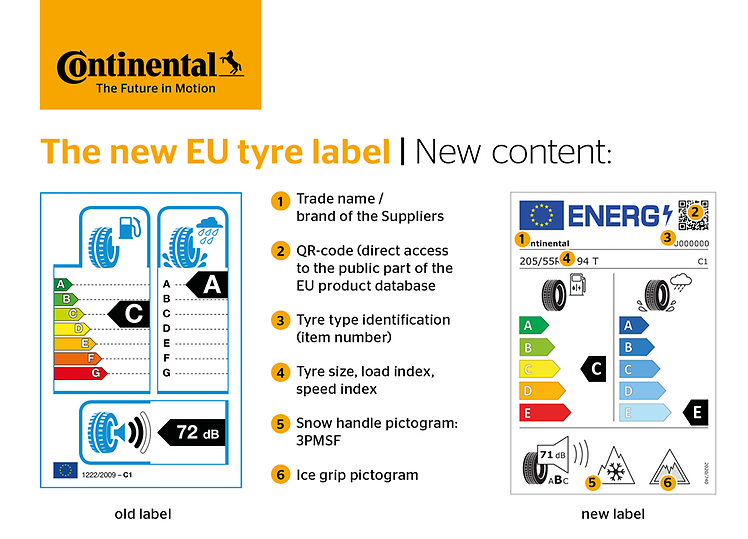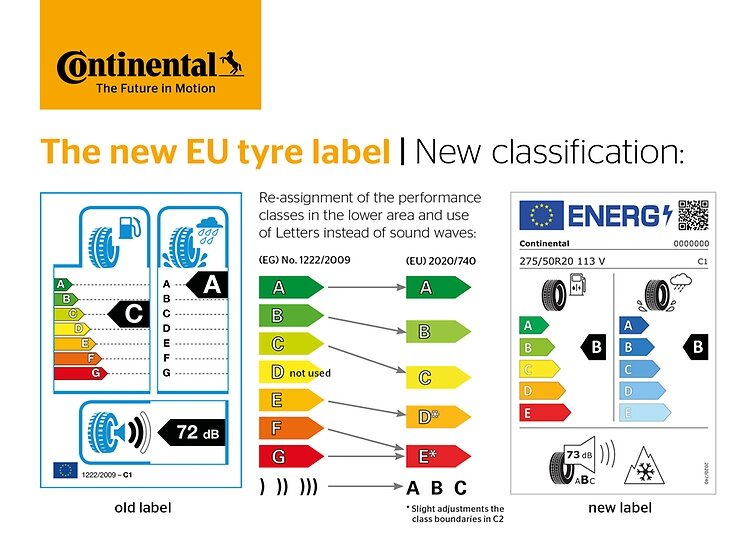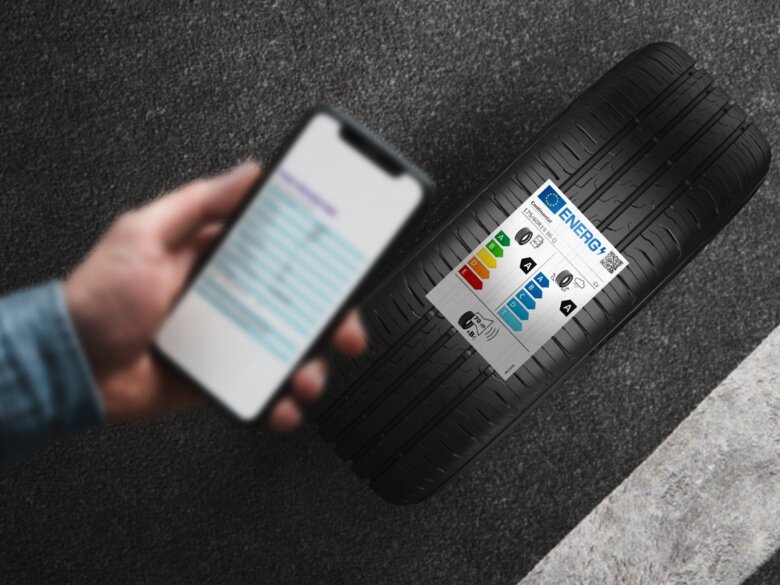New EU Tire Label Designed to Provide More Information for Consumers
New label design with clearer classification for braking, rolling resistance and noise emissions
EU label information on each tire can be called up with the QR code
New pictograms for different types of winter tire
In May 2021, a new EU tire label will be introduced to provide consumers with more comprehensive information about selected tire characteristics. On the new label, the rolling resistance and wet braking performance classes have been restructured, while noise performance is now indicated by the number of decibels and the letters A, B or C. End users can access additional information about their chosen tire on an EU database by scanning the QR code on the label. Another new feature concerns two pictograms that indicate whether this is a car tire with snow grip corresponding to the EU type approval standards, also known as the snowflake test, and/or an unstudded tire that offers ice grip in line with the new ISO standard. From May 2021, EU tire label information must also be made available for heavy-duty commercial vehicle tires (Class C3).
On the new label, classes A to C remain unchanged. For C1 and C2 tires, for cars and vans respectively, those previously in class E for rolling resistance and wet grip will now be assigned to Class D which was previously empty, while those formerly in classes F and G will be assigned to class E. This makes the label clearer and easier to interpret.

Consumers can download further information on each tire by scanning the QR code that appears in the top right-hand corner of the tire label. The QR code provides a link to the EPREL database (EPREL = European Product Registry for Energy Labelling), which contains the product information sheet. This shows all the label values for the specific tire, as well as the start and end of production for the respective model. The product information sheets are all entered on the EPREL database individually by the tire manufacturer and, as in the past, assignment to the appropriate label class is also handled by the respective manufacturer.
The new EU tire label is designed to help consumers choose more fuel-efficient tires, while at the same time obtaining information about braking distances. For end users and commercial operators alike, opting for tires with lower rolling resistance can lead to substantial savings in terms of fuel costs as well as to lower emissions. The clear information on wet grip will make for greater traffic safety, while the information on the pass-by noise is designed to help reduce the noise pollution generated by road traffic.
Further information can be found here.

Source: Continental





